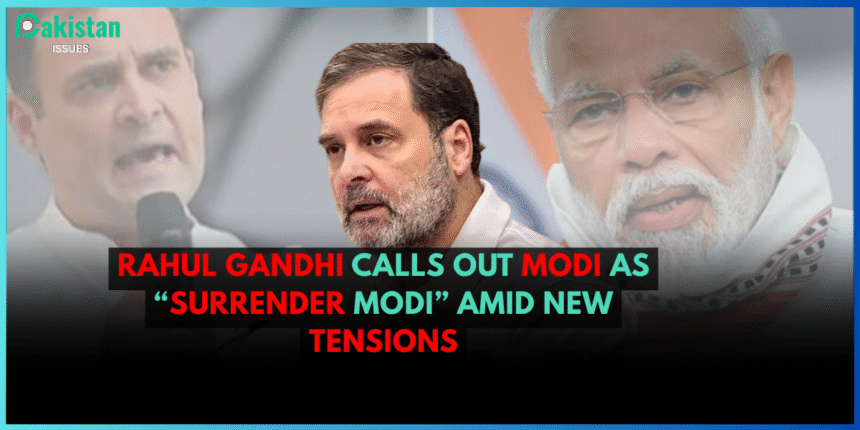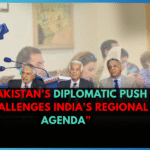Indian opposition leader Rahul Gandhi has once again sparked political fire by labeling Prime Minister Narendra Modi as “Surrender Modi,” criticizing his leadership over what he claims are diplomatic failures. The comment came after reports surfaced that former U.S. President Donald Trump had allegedly persuaded India to de-escalate during a past military standoff.
Gandhi, addressing party workers, accused Modi of backing down too easily. “He’s always ready to write surrender letters,” Gandhi said, tapping into public sentiment over India’s position on regional conflicts. This isn’t the first time Gandhi has used this phrase, but it has resurfaced with new weight as global voices weigh in on South Asia’s fragile balance.
One such voice was that of Chinese academic Professor Victor Gao, who spoke to a Chinese media outlet recently. Gao, who is a former diplomat and current vice president at a major think tank, claimed Pakistan had gained a significant edge in recent tensions with India. According to him, Pakistan’s military used modern digital warfare strategies that left India unprepared and vulnerable.
“They didn’t even know where the missiles were coming from,” Gao remarked. He added that many global observers now believe Pakistan outplayed India both in intelligence and strategy. Gao’s comments also included a stark warning: if conflict breaks out again, China would stand with Pakistan across diplomatic, military, and intelligence lines.
This bold statement has stirred discussion across diplomatic channels, especially as Pakistan and India continue to navigate disputes over Kashmir and water rights. Gao was clear that any attempt by India to control the flow of water to Pakistan — particularly from rivers shared under the Indus Waters Treaty — would be considered a serious violation of international norms.
“Cessation of water supply to people of other countries is not something which can be done… that would amount to crimes against humanity,” he told the interviewer. Moreover, Gao mentioned that the Kashmir question cannot be settled through coercive means or unilateral decisions. “Kashmir can only be resolved through dialogue,” he said.
In India, the initial response has been relatively calm with no official response from the Modi government. However, the comments have stimulated discussion among regional analysts: some view Gandhi as exploiting popular frustration whereas others see the alarmist warning as useful wake up call.
What remains clear is that tensions are once again rising, and voices from outside the region are becoming more vocal. Whether or not these statements lead to real policy changes is still unclear, but the war of words between India and Pakistan — and now their allies — shows no signs of cooling.










